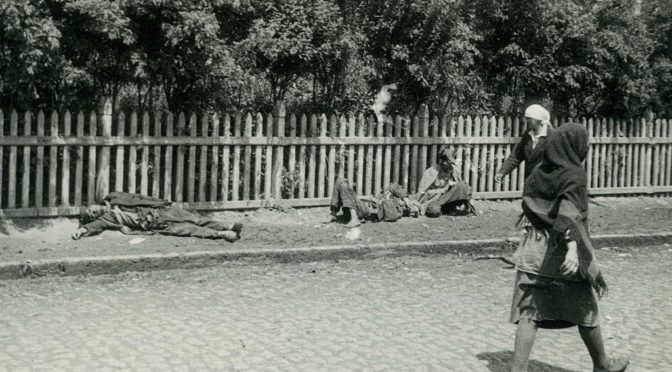Politics of Hunger. Holodomor and Beyond. NaNo seminar #5
The fifth session of the seminar “Nature(s) & Norms” (NANO), carried out within the framework of the research program SAMSON (Sciences, Arts, Medicine and Social Norms), developed by Sorbonne University (Paris), the Faculty of Arts of the Charles University (Prague), Warsaw University and CEFRES welcomes three participants: Luba Jurgenson (CNRS / Sorbonne), Stanislav Tumis (Department of East European Studies, Faculty of Arts, Charles University), and Libuše Heczková as discussant.
Location: CEFRES Library and online (zoom)
To receive the link, please contact us at cefres[@]cefres.cz
Date: Friday, February 24th 2023, 4.30 pm
Language: English
Part 1
Luba Jurgenson, Eur’ORBEM (CNRS / Sorbonne)
A culture of norms: Biopower in the service of terror
Abstract: This presentation aims to interrogate the norms developed by the Soviet state, particularly during the Stalinist period, to regulate the relationship between the product of citizens’ labor and the food they are allowed to consume. It aims to seize in particular the situation of populations considered as wrongdoers or criminals, namely peasants who oppose (or are supposed to oppose) collectivization and Gulag inmates. Hunger is a political weapon and a means of separating legitimate bodies (workers, defenders of the fatherland) from illegitimate bodies (those of “enemies”, “saboteurs”, “parasites” and other individuals who do not deserve to eat), the “healthy” body of society from its “sick” body;
the exchange between the citizen and the State being built on the mode of a negative retribution which consists in taking what is judged lacking in the product of his work from the very body of the worker (and of the members of his family) until the final confiscation of these bodies themselves.
Luba Jurgenson is professor of 20th century Russian Literature at Sorbonne Université and director of the mixed research unit (UMR 8224, CNRS=Sorbonne) Eur’ORBEM Scientific Center. Her research focuses on memory and representations of mass violence in Central and Eastern Europe. Recent publications include The Eye-sower. Paths of Varlam Shalamov(2022), Landscapes of Memory (catalog of the exhibition, Memories at stake, with Philippe Mesnard, 2020); Gulag, testimonies and archives, with N. Werth, 2017).
Part 2
Stanislav Tumis, Department of East European Studies, Faculty of Arts, Charles University
“Ukrainian” Famine in Contemporary Academic Discussion and its Role for Ukrainian Historical Consciousness
Abstract: The paper will discuss contemporary academic debate concerning the Ukrainian Famine and will try to understand why the topic of Famine in 1930s became not only a part of Ukrainian, Russian and also western scholarly research, but more and more a part of general worldwide discussion. First, we explain how the topic of “Ukrainian” famine and its different interpretations entered the worldwide scholarly debate after the famous book Harvest of Sorrow was published by Robert Conquest which thematised and developed the stormy discussion whether the Famine was, or was not genocide. After the Orange Revolution, and yet more after Euromajdan the Famine as a genocide became in Ukraine one of the central topics in formation of national identity strongly opposing the Soviet (Russian) heritage. It caused strong protests of Russian scholars and politicians. The Holodomor entered still more into European and western debate and was projected as an Ukrainian gulag, or as a variation of Holocaust, a symbol of „absolute evil“, and destructivity of the Soviet totalitarianism and thus antipole of Nazi totalitarianism.
Stanislav Tumis is an assistant professor at the Department of East European Studies, Faculty of Arts, Charles University. He focuses on modern political and cultural history of Eastern Europe with particular emphasis on modern history and nationalism of Ukraine, primarily in the Soviet period.
See the complete program of the Seminar here.

